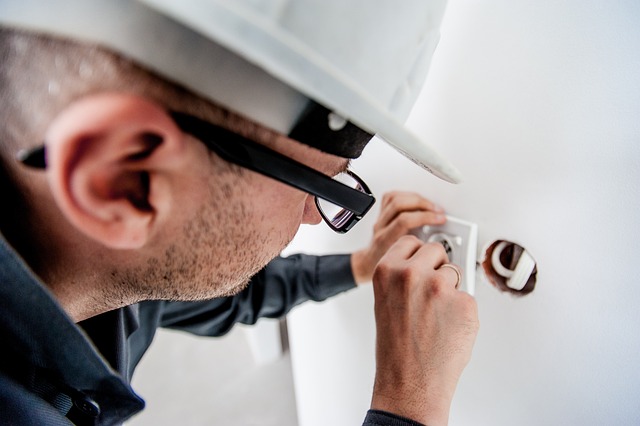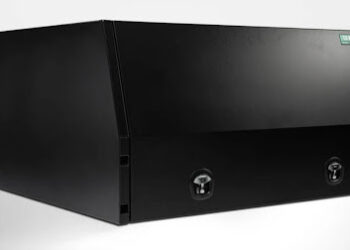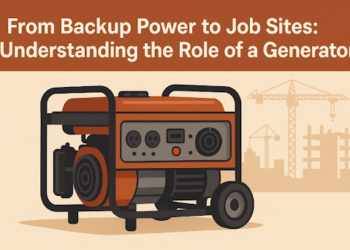In our modern-day lives, electricity plays an indispensable role, powering our homes and enabling the functionality of essential appliances. However, with the convenience of electricity also comes the potential for electrical emergencies that can occur unexpectedly. Knowing how to handle common electrical emergencies at home is crucial for ensuring the safety of ourselves, our loved ones, and our property. Whether it’s a power outage, a tripped circuit breaker, or a sparking outlet, being prepared to respond calmly and effectively can make all the difference.
In this guide, we will explore essential tips and step-by-step instructions on how to navigate through these challenging situations and address common electrical emergencies with confidence and competence. By understanding the proper protocols, we can safeguard against potential hazards and minimize risks, turning a potential disaster into a manageable situation.
How To Address Common Electrical Emergencies Competently At Home
Addressing common electrical emergencies competently at home is essential for ensuring the safety of everyone in the household. While some situations may require the expertise of a professional electrician, having a basic understanding of how to handle common electrical issues can be invaluable whenever you want to fix emergency electrical issues. Here are detailed steps to address some of the most common electrical emergencies:
1. Power Outage:
– Check if the power outage is limited to your home or if it’s a widespread outage in the neighborhood. If it’s just your home, check the circuit breaker panel to see if any breakers have tripped. If there’s a widespread outage, contact your electricity provider to report the issue.
– Have a flashlight or battery-operated lantern readily available in case of prolonged outages, and avoid using candles, as they can pose a fire hazard.
– Unplug sensitive electronic devices to protect them from power surges once the power is restored.
2. Tripped Circuit Breaker:
– Identify the location of your circuit breaker panel. Usually, it’s in the basement, utility room, or garage.
– When a circuit trips, it moves to the middle position between “On” and “Off.” To reset it, first, switch it fully to the “Off” position and then back to the “On” position.
– If a circuit trips repeatedly, it might be overloaded or experiencing a fault. In such cases, unplug some devices and try resetting the breaker again. If the problem persists, consult a professional electrician.
3. Electrical Shock:
– If you or someone else experiences an electrical shock, it’s essential to act quickly but cautiously. Do not touch the person while they are in contact with the electrical source.
– Turn off the power at the circuit breaker or unplug the device causing the shock, if possible, without touching it directly.
– Call for emergency medical assistance immediately if the shock causes significant injury or if the person is unresponsive.
4. Sparking Outlets:
– If you notice sparking or smoke coming from an outlet, immediately turn off the power to that circuit at the breaker panel.
– Avoid using the outlet until it can be inspected and repaired by a professional electrician.
– To prevent further incidents, refrain from overloading outlets with too many devices, and use surge protectors for sensitive electronics.
5. Overloaded Circuits:
– Overloading a circuit can cause it to trip frequently or, in extreme cases, start a fire. Avoid plugging too many high-power devices into the same circuit.
– Spread out the load by connecting devices to different outlets on different circuits.
– Be mindful of the power ratings of your electrical devices and the capacity of the circuit they are connected to.
6. Electric Fire:
– In the event of an electrical fire, immediately call the emergency services (911) and evacuate all occupants from the house.
– If it is safe to do so, use a fire extinguisher rated for electrical fires to attempt to put out the fire. Aim at the base of the flames, not the electrical source directly.
– Do not use water to extinguish an electrical fire, as water conducts electricity and can make the situation worse.
Remember, electrical emergencies can be dangerous, and your safety should always be the priority. If you are unsure about the situation or lack confidence in handling it, don’t hesitate to call a professional electrician for assistance. Regularly inspect your electrical systems, and if you notice any potential issues, have them addressed promptly to prevent emergencies in the first place.
Why You Need an Experienced Emergency Electricians to Fix Emergency Power Issues
Dealing with electrical emergencies at home can be a daunting task, and in such situations, seeking the help of an experienced emergency electrician is not only beneficial but also indispensable. Electrical emergencies can arise unexpectedly and pose significant risks to life and property. Attempting to handle these issues without proper knowledge and expertise can lead to further damage or even injury. Here’s why the assistance of an experienced emergency electrician is crucial in addressing and fixing emergency electrical issues:
- Safety First: Electrical emergencies can involve exposed live wires, sparking outlets, or power outages that may impact critical home systems. An experienced emergency electrician has the necessary training and equipment to handle these situations safely. They can assess the risks, take proper precautions, and follow safety protocols to prevent accidents and injuries.
- Swift Response: Electrical emergencies often require immediate attention to prevent further damage. Emergency electricians are available around the clock and can respond promptly to your call for help. Their swift response can minimize downtime, restore power, and protect your home from potential hazards.
- Expert Diagnosis: Identifying the root cause of an electrical emergency is essential to address the issue effectively. Emergency electricians have extensive knowledge and experience in diagnosing various electrical problems quickly and accurately. They can pinpoint the source of the problem and offer the most appropriate solutions.
- Proper Tools and Equipment: Fixing electrical issues often requires specialised tools and equipment. Emergency electricians come prepared with the necessary tools to handle different scenarios efficiently. Their expertise and access to proper equipment ensure that repairs are done correctly and safely.
- Code Compliance: Electrical work must adhere to local building codes and safety regulations. An experienced emergency electrician is well-versed with these codes and ensures that all repairs are carried out in compliance. This helps prevent potential fines and ensures the safety and legality of the electrical system.
- Preventing Future Emergencies: Emergency electricians not only address the immediate issue but also take measures to prevent similar emergencies in the future. They may identify underlying problems, suggest upgrades, or recommend maintenance practices to enhance the safety and reliability of your electrical system.
- Insurance Coverage: Attempting DIY electrical repairs during emergencies may void your home insurance coverage. On the other hand, hiring a licensed and insured emergency electrician ensures that any potential damages are covered, giving you peace of mind.
Summary
In conclusion, electrical emergencies demand urgent attention and professional expertise. The help of an experienced emergency electrician is indispensable in fixing these issues safely and effectively. Their swift response, expert diagnosis, adherence to safety standards, and ability to prevent future problems make them an invaluable resource during critical situations. When faced with an electrical emergency, always prioritize safety and rely on the expertise of qualified professionals to resolve the issue.







